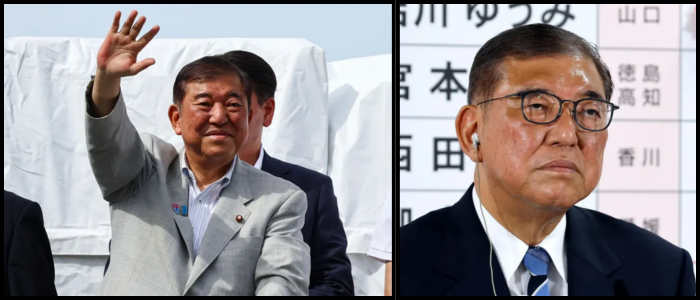Election Results Reflect Public Discontent
The recent upper house election revealed widespread frustration with the coalition of the Liberal Democratic Party (LDP) and its junior partner Komeito. The coalition needed at least 50 seats to keep control of the 248-seat chamber, but managed to secure only 47. This defeat follows the coalition's earlier loss of the majority in the more powerful lower house last year, weakening its influence further.
The main opposition, the Constitutional Democratic Party, secured 22 seats. Voters cast their ballots for half the seats in the chamber, with each elected member serving a six-year term. The election took place amid growing dissatisfaction with rising prices, especially for essentials like rice, and uncertainty surrounding US trade tariffs.
The public appears disheartened by Ishiba's leadership, as he struggles to gain support while navigating economic challenges, inflation, and ongoing trade negotiations. Political scandals involving the LDP have also contributed to eroding trust among voters.
Rise of Right-Wing Sanseito Party
The election also highlighted a shift in the conservative voter base. Support for the LDP was reduced as voters turned to the smaller right-leaning Sanseito party, which increased its presence in the upper house from one seat to 14. Led by Sohei Kamiya, the party drew attention with its nationalist and anti-immigration stance.
Sanseito gained popularity during the pandemic, spreading controversial views online and criticising public health measures. Its "Japanese First" policies resonated with many voters, particularly as immigration became a key issue in the election. Japan has seen a sharp rise in foreign residents and tourists in recent years, which has added pressure on the economy and stirred concerns about rising prices and social issues.
In response to public sentiment, Prime Minister Ishiba recently formed a task force to address problems involving foreign nationals. The task force will focus on issues such as immigration, land ownership, and unpaid social insurance contributions.
Despite this political defeat, Ishiba remains determined to stay in power. However, with past LDP leaders stepping down after similar election losses, the pressure on him may intensify. Potential challengers like Sanae Takaichi, Takayuki Kobayashi, and Shinjiro Koizumi could emerge if calls for leadership change grow louder.
Although the Tokyo Stock Exchange was closed for a public holiday, the yen gained strength against other major currencies, signalling that the election outcome was anticipated by investors.
Politics

Japan PM refuses to quit after election loss

Japan's ruling coalition faced a major political blow after losing its majority in the upper house. Despite the outcome, Prime Minister Shigeru Ishiba has confirmed he will remain in office, focusing on trade talks and governance during challenging times.















